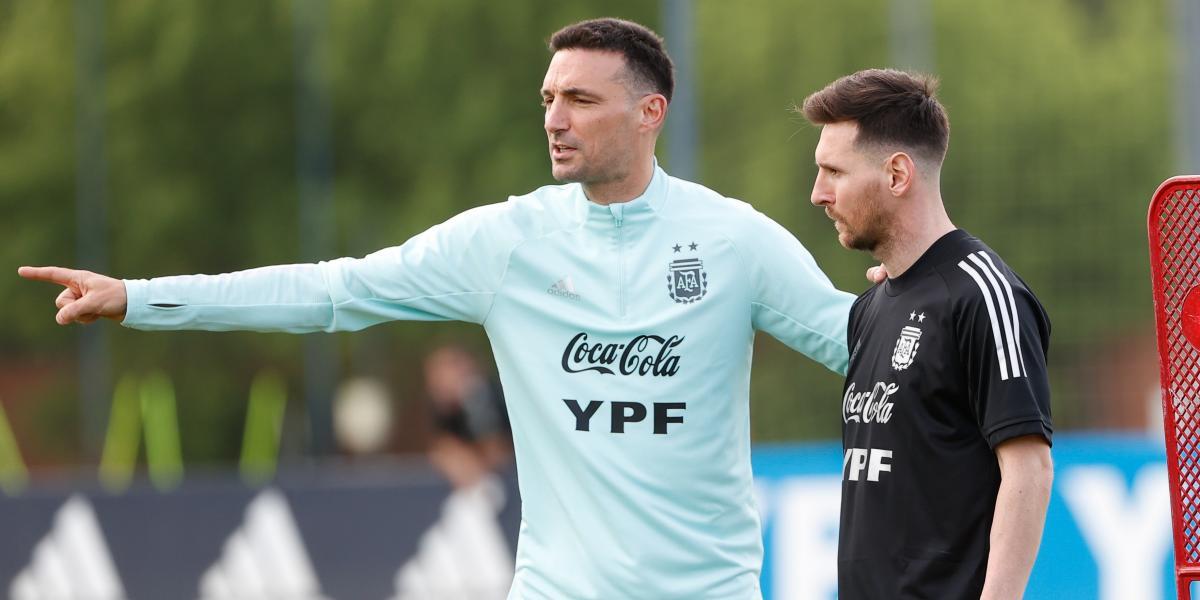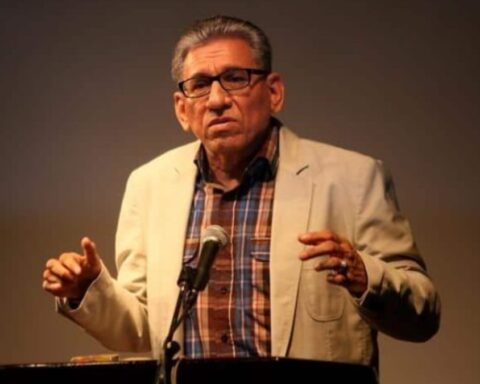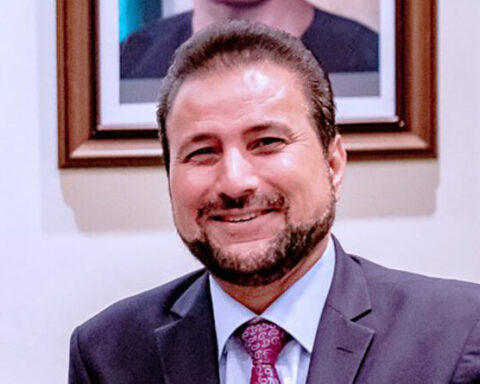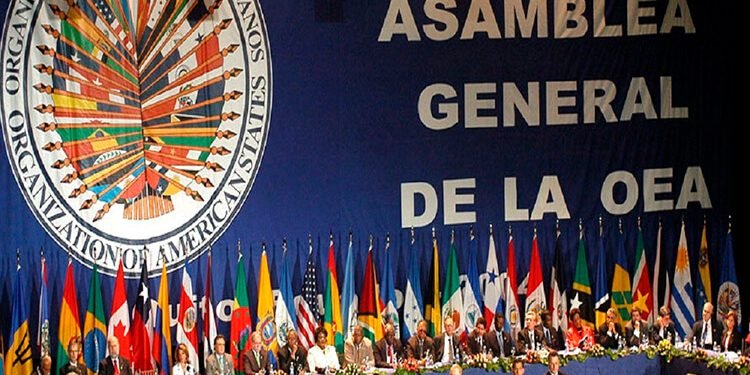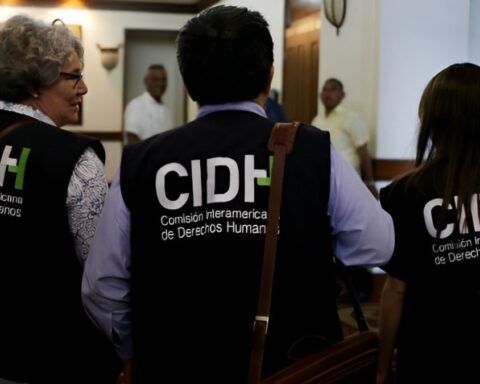After the virulent speech of President Daniel Ortega, in which he called “Sons of bitches of the Yankee imperialists” To the more than 170 political prisoners that he keeps in the country’s jails, the concern of the relatives of prisoners of conscience, in the face of possible “political reprisals”, has increased.
In an interview with the program Tonight, Victoria Cárdenas and Berta Valle, wives of political prisoners Juan Sebastián Chamorro and Félix Maradiaga, respectively, affirmed that they fear that, after Ortega’s words, there will be a violent response against all political prisoners, who have been tortured for months, including isolation, constant interrogation and lack of access to food.
“After a month of not seeing them, not knowing how they are doing, and after these violent accusations, these hateful words, we do not know how they are responding against the people who are inside the prisons,” Cárdenas said.
Cárdenas and Valle agree that, in the face of this hostile and dangerous context for their political prisoners, the actions of the international community are “more urgent than ever”.
What did you feel when you heard President Daniel Ortega, when he attacked the political prisoners and called them “sons of bitches of the empire“?
Victoria Cárdenas: We feel a strong indignation and a repudiation of those words of hatred towards our husbands and the rest of the political prisoners. Our husbands and other political prisoners are children of Nicaragua because that is why they are imprisoned, for defending their homeland, for wanting democracy, for wanting freedom and for wanting Nicaraguans to live in dignity and freedom. We are very concerned with those hateful words, because of the repercussions they can have on our relatives.
Berta Valle: As Victoria said, one of the things that worries us the most is to see a president refer to people with those degrading words, taking away their dignity and also feeling that they have the power to decide whether a Nicaraguan citizen has the right to a homeland or not; For this reason, we are raising our voices to tell both Nicaraguans and the international community that the release of political prisoners has to be a commission that we must all demand, because we are talking about the lives of more than 170 people who are unjustly imprisoned.
Berta, Ortega described the prisoners of conscience as “fatherland vendor“ and threatened them with expatriation to the United States. How do you interpret this threat? Is Ortega going to try a negotiation or an expulsion?
It is difficult to clearly decipher what Daniel Ortega and his regime are about to do, but clearly what we can see is a frustration on the part of Daniel Ortega and Rosario Murillo and all their Sandinista fanatics, a frustration at the rejection of the vast majority of Nicaraguans in this electoral farce.
Victoria, what is the position of you and your husbands, the imprisoned presidential candidates, that Ortega intends to use them as hostages or exchange coins? How to achieve the freedom of the prisoners?
Our husbands are there because they are people who believe in a democratic transition, who have fought all these years to achieve this peaceful change, they are not change chips, they are human beings who are being tortured like the rest of the political prisoners in those cells. , and we will not accept that they use them that way. What we demand, the relatives of political prisoners, is their immediate and unconditional release.
Release of political prisoners
Berta, how do you assess that the liberation of political prisoners can be achieved?
From within Nicaragua, we all know that there is no possibility for an active citizenry to exert pressure to achieve these demands, so we have seen a great alternative from the international community and the different mechanisms that exist to exert pressure and demonstrate to the regime of Daniel Ortega who cannot continue to think that they have impunity. That is why we believe that these mechanisms can help us demand the release of political prisoners, the restoration of democracy and our rights. Nicaragua is kidnapped, it is controlled by a regime that wants to stay in power; therefore, the actions of the international community are more urgent than ever.
Victoria, is there national support, support for you in this demand for the immediate release of those detained for political reasons?
Yes, solidarity is there and the commitment that the people with whom we meet and talk has shown us exists. Now, what we need is for that commitment to be materialized in actions, which the countries together exercise over the regime, so that once and for all, they release the political prisoners. These people who are there are suffering, they are starving and now we have not heard from them for a month. They are held incommunicado and incommunicado in time is torture under International Law. In addition to the release, we demand regular visits, we also demand that their lawyers see them because right now they are totally defenseless, the trials were suspended and they are in indefinite detention.
You also demand the annulment of those lawsuits. What do you know about the progress of this process? What do the judicial authorities tell them? Ortega, on the night of November 8, established a trial on the guilt of the detainees.
Berta Valle: What we have seen is a clear violation of due process and a lack of the rule of law in Nicaragua. The trials are being committed arbitrarily, breaking both national and international laws, and they are being accused by illegitimate laws, which were created from a National Assembly controlled by the regime, and a Supreme Court of Justice, which all that does is follow the dictator’s orders. Therefore, these trials are illegal, they are illegitimate, and we continue to demand and demand the non-recognition of these trials and the unconditional release of our family members.
Victoria, why are they concerned about this attack from the highest authority towards their relatives? What are they afraid of?
We are concerned because the condition in which these people, our relatives, live within these cells are not conditions in which any human being can live with dignity. After a month of not seeing them, we don’t know how they are. After these hateful words, we do not know how they are responding against the people who are inside the prisons. My sister-in-law, for example, told me after the last visit that if I saw my husband enter a door, I would not recognize him because of how thin he is, because of how pale he is. Juan Lorenzo Holmann (general manager of La Prensa) is losing the vision in one of his eyes; (the former deputy) José Pallais has been in hospitals on numerous occasions; (the former diplomat) Mauricio Díaz, we know that he has been in extremely delicate conditions, and that is how I can name you many cases of our relatives. Everyone is in danger, everyone is in harsh condition.
Berta, you are currently in Washington, United States, can you tell us what this visit you are making together on the condition of political prisoners is about.
We come to Washington to join the hundreds of Nicaraguans who marched on November 7; We participated with the Nicaraguan community, we were also present at the mass that Monsignor Silvio José Báez gave. That was part of our intention, to unite with the Nicaraguan community, to demand with one voice the freedom for Nicaragua and the political prisoners. In addition, we have had a series of meetings with different decision makers from both the Administration of President Joe Biden, as well as from other countries with great interest in what will happen in this meeting of foreign ministers of the OAS (Organization of American States), which we believe it is going to be a very important moment. We have seen that when these decision makers listen to our testimonies they put faces to those numbers of political prisoners and really understand better the seriousness of the situation in which they are living, that is why we are here telling our story, that of the families of the more than 150 political prisoners, what Nicaraguan exiles are experiencing in different countries and what is happening with the repression within Nicaragua.


